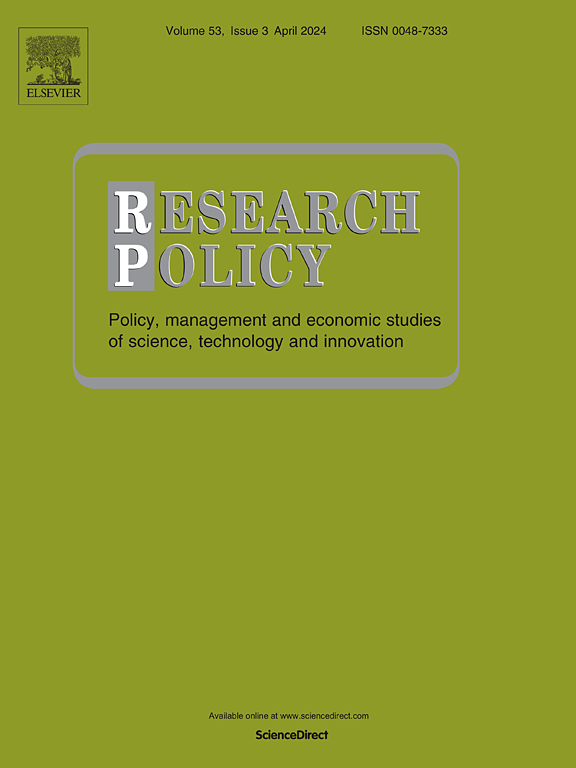家族首席执行官与激进创新:管理视角
IF 7.5
1区 管理学
Q1 MANAGEMENT
引用次数: 0
摘要
本文整合了有关激进创新、管理视角和家族企业研究的文献,建立并检验了一个模型,考察了家族首席执行官和首席执行官所处代际阶段对激进创新的影响,将不同类型的家族首席执行官视为战略领导者管理行为的不同表现形式。此外,在 "少花钱多办事 "的概念基础上,我们提出了 "少花钱办好事 "的概念--具体来说,即家族首席执行官的存在是否会增强企业在资源限制条件下(即研发强度较低)对激进创新的追求,并对这一概念进行了实证检验。通过使用来自 29 个国家的 227 家汽车和制药/生物技术行业上市公司长达 11 年的纵向数据,我们发现,由家族首席执行官领导的公司,尤其是由其后代领导的公司,在激进创新方面表现出色。家族后裔领导的企业在研发强度较低的情况下也更善于激进创新,这表明他们能以更少的投入获得更好的成果。也就是说,我们的研究表明,处于后代阶段的家族首席执行官是激进创新的催化剂,即使在资源有限的情况下也是如此。除了对理论和实践的影响之外,我们的研究结果还提供了对战略领导力与创新关系的更深入的理解,即在家族领导的企业中,激进创新的管理行为具有不同的表现形式。本文章由计算机程序翻译,如有差异,请以英文原文为准。
Family CEO and radical innovation: A stewardship perspective
This article integrates the literature on radical innovation, the stewardship perspective, and family business research to develop and test a model examining the influence of a family CEO and the CEO's generational stage on radical innovation, considering different types of family CEOs as distinct manifestations of strategic leaders' stewardship behavior. Furthermore, building on the notion of “doing more with less”, we propose and empirically test the notion of “doing better with less”—specifically, whether the presence of a family CEO enhances the pursuit of radical innovation under resource constraints (i.e., with lower R&D intensity). Using longitudinal data over an 11-year period from 227 listed firms in the automotive and pharma/biotech industries from 29 countries, we find that firms led by a family CEO, especially those led by descendants, excel at radical innovation. Descendant-led firms are also better at radical innovation with lower R&D intensity, suggesting they do better with less. That is, our study shows that family CEOs at a later generational stage serve as catalysts for radical innovation, even under resource constraints. In addition to implications for theory and practice, our findings offer a more advanced understanding of the strategic leadership-innovation relationship in terms of distinct manifestations of stewardship behavior for radical innovation in firms with family leadership.
求助全文
通过发布文献求助,成功后即可免费获取论文全文。
去求助
来源期刊

Research Policy
MANAGEMENT-
CiteScore
12.80
自引率
6.90%
发文量
182
期刊介绍:
Research Policy (RP) articles explore the interaction between innovation, technology, or research, and economic, social, political, and organizational processes, both empirically and theoretically. All RP papers are expected to provide insights with implications for policy or management.
Research Policy (RP) is a multidisciplinary journal focused on analyzing, understanding, and effectively addressing the challenges posed by innovation, technology, R&D, and science. This includes activities related to knowledge creation, diffusion, acquisition, and exploitation in the form of new or improved products, processes, or services, across economic, policy, management, organizational, and environmental dimensions.
 求助内容:
求助内容: 应助结果提醒方式:
应助结果提醒方式:


